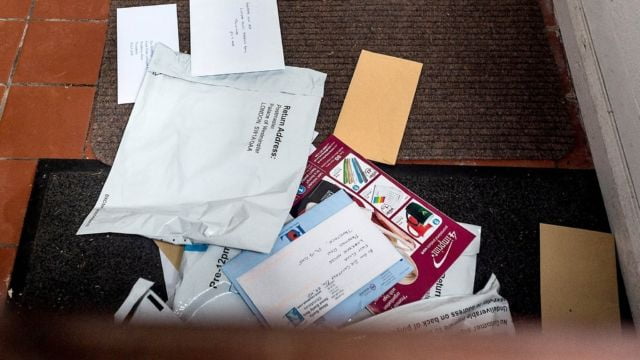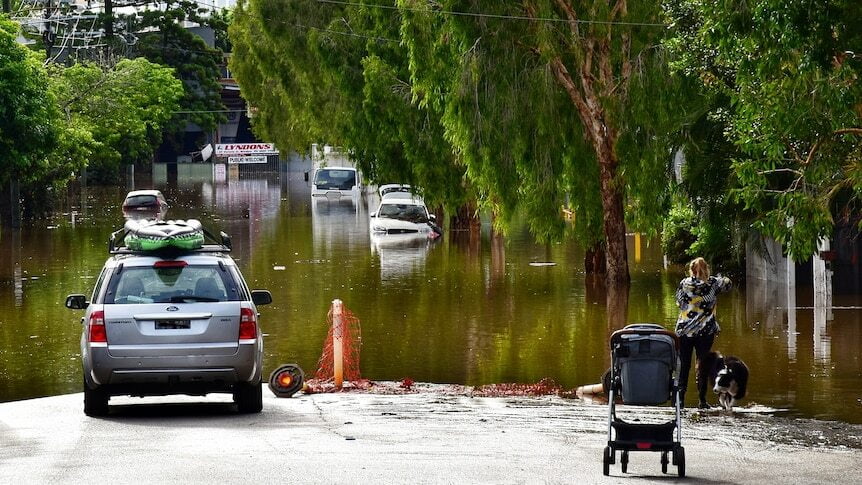Flood-impacted residents in parts of Queensland and northern NSW have been attacked by scammers sending them letters. Source: Andrew Simonsen
The “disaster assistance fraud” consists of letters addressed to strangers containing applications for privatised healthcare cards or rental assistance.
Most of the letters feature Centrelink’s logo, with an obvious aim at conning unsuspecting pensioners or flood-affected residents into giving their personal information.
But it isn’t just one letter.
Reports of residents receiving over 10 letters in a short period of time, with different names on each letter, have baffled locals.
Services Australia released a statement last month warning flood disaster recipients to not respond to these fraudulent letters, as scammers had obtained customer numbers at random.
There is no evidence to say that personal information has been accessed by the scammers.
Residents in Lismore and Coffs Harbour were first targetted in early April, now locals in the Queensland’s impacted Wide Bay area are being inundated with the scam.
Gympie resident Len Kippax said he had received over 30 letters addressed to a variety of names at his address over the last month.
“I’ve lived here for 20 years, and I’ve never heard of these people,” he said.
“I think there’s a bit of a scheme going on.
“It’s pretty low.”

General manager Hank Jongen said that whilst the fraudulent letters were minor, several people had attempted to claim flood assistance from outside the impacted areas.
“Quite frankly if people are deliberately setting out to rip off the system they will be caught,” Mr Jongen said.
“Not only will they then be required to repay the money that we’ve paid, but in addition to that, they could very well face prosecution with severe penalties under the Crimes Act.”
IdCare managing director David Lacey also said that the support payments hunted after by scammers could be income tested, making elderly people’s concession and senior’s cards important for access.
“Most of that organised crime is not physically in Australia, it’s based offshore,” he said.
Dr Lacey stated that the sheer volume of letters that residents are receiving means that it is highly likely the work of an organised crime group, rather than separate individuals.
If you have heard anything about this, or have some information regarding disaster assistance fraud, do not hesitate to contact the Services Australia hotline on 131 524.






